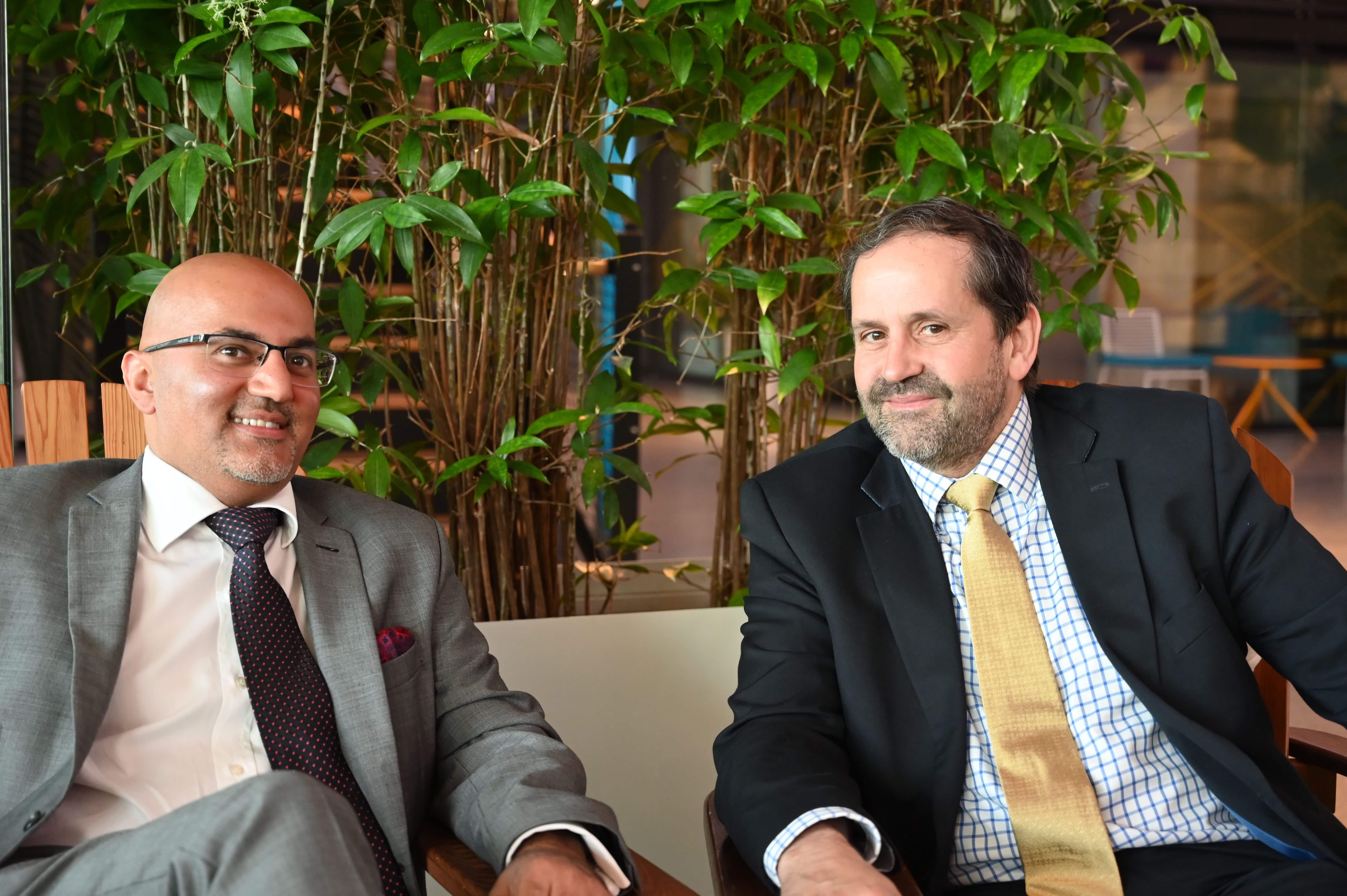
What is Atrial Fibrillation?
Atrial Fibrillation causes irregular pulse or irregular heart beat resulting in the feeling of palpitations (jumping heart beat). It results from an abnormality of electrical conduction affecting the atrial chambers of the heart, which rather than beating in a coordinated and purposeful manner, contract in a haphazard and ineffective way. In its early form, Atrial Fibrillation may occur in a spontaneous manner for short periods. This is known as “Paroxysmal Atrial Fibrillation”. As the disease progresses, Atrial Fibrillation becomes more “Persistent” and will eventually become ”Permanent”. Atrial fibrillation ablation is an important treatment for atrial fibrillation.
Why is Atrial Fibrillation Important?
Atrial Fibrillation is a very common abnormality which has a sinister long term affect on both the quality and length of life of your life. It can lead to heart failure, valve disturbances, and stroke. Patients usually require drugs to control the speed of the rhythm as well as blood thinners to prevent clot formation. These blood thinners can, themselves, create strokes as a result of bleeding in the brain.
Early Diagnosis is Critical
We need to be much better at picking up Atrial Fibrillation, and new wearable technologies will undoubtedly be a game changer in this regard. For those who have developed atrial fibrillation, we also need to select patients who may be suitable for catheter and surgical based treatments which can be very effective at abolishing the harmful rhythm.
Catheter Atrial Fibrillation Ablation Treatment
This treatment involves the advancement of catheters into the heart via the groin vessels. These catheters are placed at the orifices of the pulmonary veins, and can detect abnormal electrical activity in these zones. Any detected abnormal activity can be destroyed with radiofrequency energy. This treatment is only really effective in patients with Paroxysmal Atrial Fibrillation. The immediate result can be very good. Recurrence occurs in as many as 30% of patients within one year and repeat therapies may be required.
Catheter ablation is not an effective therapy for permanent Atrial Fibrillation. When the rate of atrial fibrillation cannot be controlled with drugs a different strategy is sometimes used where the conduction system that connects the fast beating atrial chambers (AV node) can be disconnected from the big muscular ventricles. The heart rate must be restored using a permanent pacemaker but the efficiency of the heart cannot be restored using this therapy. This is called AV node ablation, and is generally not recommended without first considering a surgical strategy for Atrial Fibrillation ablation. This treatment is becoming less favoured as advances in the surgical treatment of Atrial Fibrillation using keyhole or minimally invasive treatments has shown excellent results.
Keyhole Surgical Atrial Fibrillation Ablation
Keyhole atrial fibrillation ablation is performed through small holes between ribs and is very effective in patients in whom other treatments such as catheter (through the groin) treatments have failed or are not effective. The principle of this procedure is to isolate the left and right pulmonary veins using a clamp that is designed to interrupt the electrical continuity between the pulmonary veins and the heart, just like the catheter ablation strategy.
The advantage of surgical based therapies lies in the fact that a more visually guided and thorough ablation can be performed. In addition, obliteration of clot forming zones within the heart such as the left atrial appendage can be performed very safely using a left atrial clip. Access is via small telescopic incisions placed on either side of the chest. For the treatment of paroxysmal atrial fibrillation, a heart lung machine is not required. When atrial fibrillation becomes more persistent in nature, or in patients in the early phase of permanent atrial fibrillation, a more aggressive keyhole therapy may be considered using the heart-lung machine. This is called The Maze Procedure. The Maze procedure includes further ablation lines in addition to pulmonary vein isolation and is extremely effective.
Introducing Mr. Steven Hunter, Surgical Electrophysiology Lead
The Keyhole London Heart Clinic have invested much time and resource to create a world class Atrial Fibrillation Clinic aimed at treating atrial fibrillation using the most effective treatment strategies available today. We are pleased to announce that Mr. Steven Hunter, Consultant Surgeon has joined our team and now leads the Surgical Electrophysiology Division.
Steven is a very accomplished keyhole heart surgeon and highly respected amongst his peers. In 2003 he began a Keyhole Atrial Fibrillation Surgery programme and became only the second surgeon in the world to perform this procedure. Part of this treatment involves the application of a clip to an area of the heart called the left atrial appendage in order to reduce the risk of stroke which may result from clot formation in this appendage. Steven was the first surgeon in the world to apply this clip using keyhole surgery.
His vast experience in heart rhythm ablation will ensure that The Keyhole Heart Clinic continues to offer world class treatments in both traditional and keyhole treatments.
We interviewed Steven recently in our headquarters at Plexal.
Please feel free to watch the full video here:
Other useful links:
